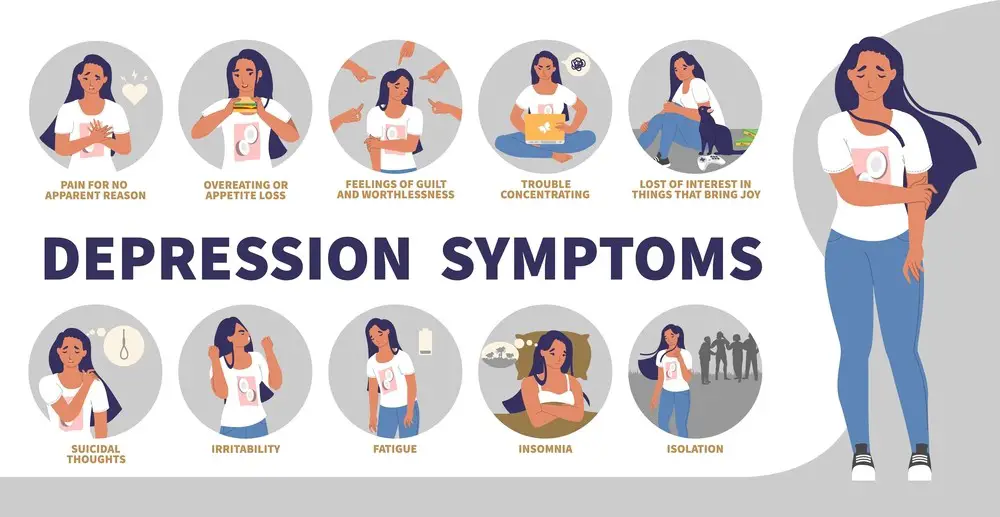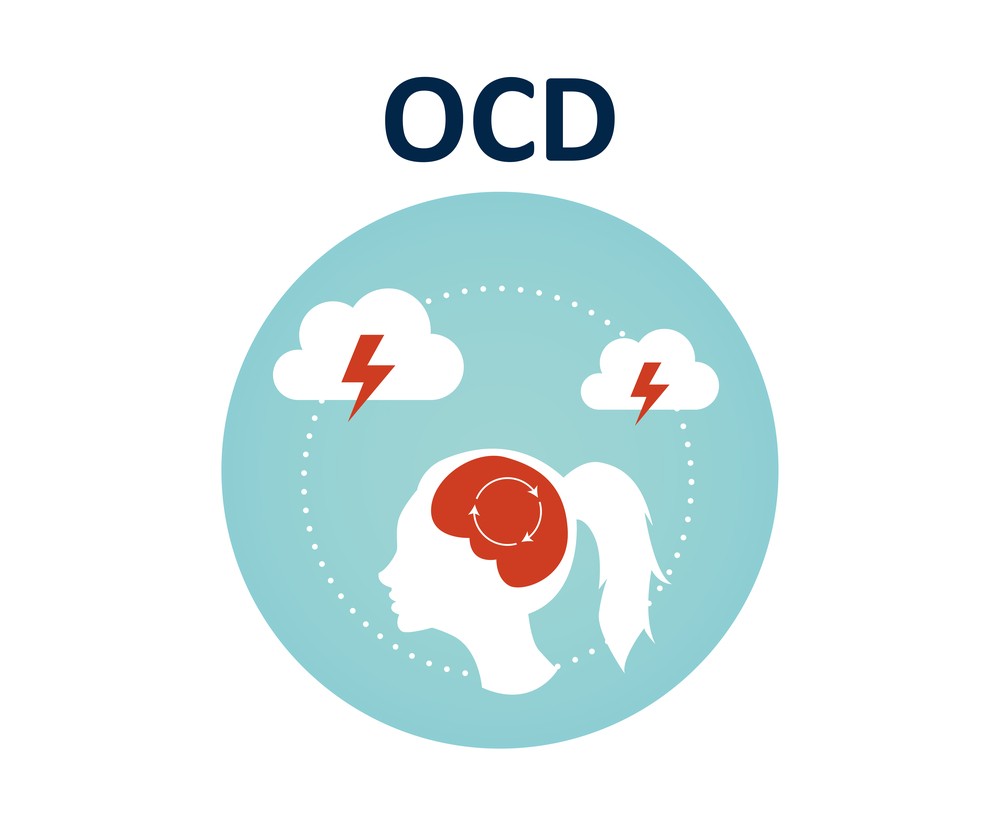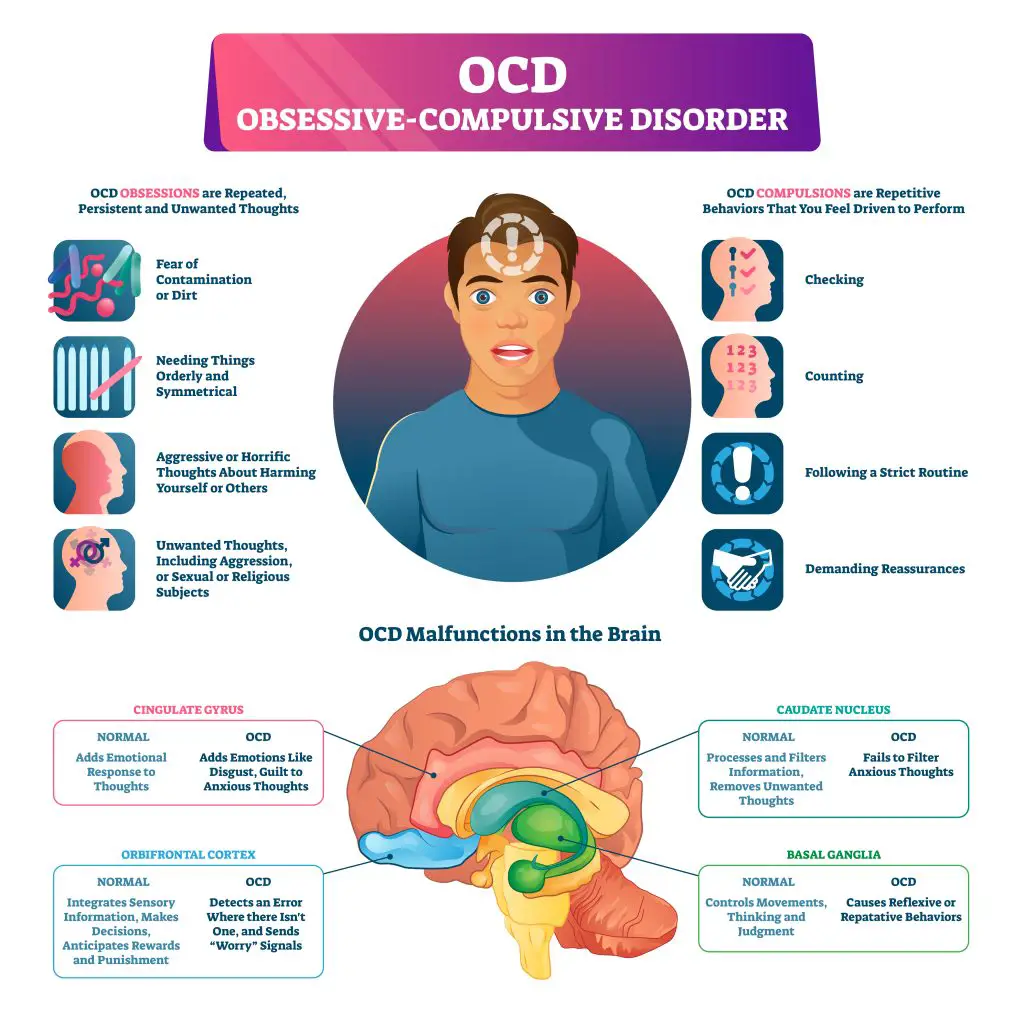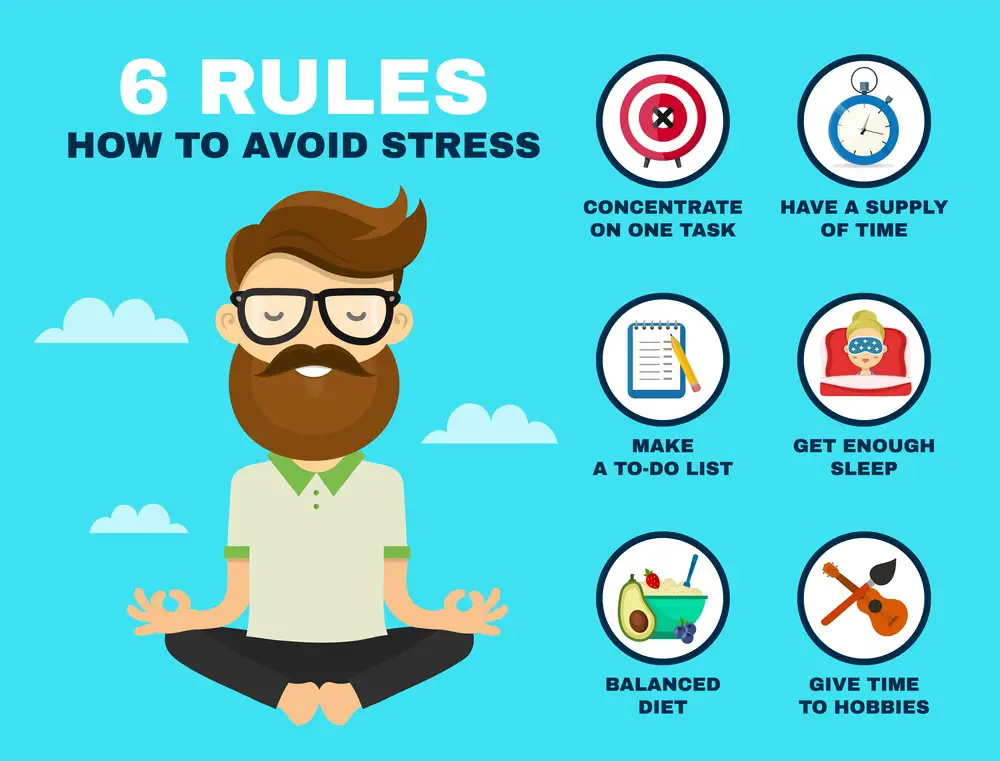As a BetterHelp affiliate, we receive compensation from BetterHelp if you purchase products or services through the links provided
Rumination OCD is a subtype of obsessive-compulsive disorder that involves repetitive and passive thoughts focused on the causes and effects of a person’s distress. These thoughts can be intrusive and overwhelming, but ruminating does not lead to active coping mechanisms or solutions, unlike typical problem-solving strategies. It instead fuels the cycle of anxiety and compulsive behaviors, making it difficult for those affected to break free from their persistent thoughts.
Understanding the cognitive aspects of rumination and its connection with OCD is essential for tackling this issue. Factors like chronic stress and postpartum depression can also contribute to the development of rumination OCD. Fortunately, various treatments, including therapy and medication, are available to help manage the symptoms and improve the sufferer’s quality of life.
Key Takeaways
- Rumination OCD involves repetitive, passive thoughts that don’t result in active coping or solutions.
- Chronic stress and other factors can contribute to the development of rumination OCD.
- Various treatments, including therapy and medication, can help manage symptoms and improve quality of life.
 Understanding OCD and Rumination
Understanding OCD and Rumination
Nature of OCD
Obsessive-Compulsive Disorder (OCD) is a mental health disorder characterized by a combination of obsessions and compulsions. People with OCD often experience intrusive thoughts that cause anxiety and distress. These thoughts or obsessions can revolve around specific fears, such as germs, harm to others, or losing control. To cope with these unpleasant obsessions, people with OCD may engage in compulsive behaviors—repeated actions or rituals meant to reduce anxiety and distress.
Some common compulsive behaviors include:
- Repeated hand washing or cleaning
- Constantly checking to make sure doors are locked or appliances are turned off
- Counting or saying specific words or phrases
- Arranging items in a precise order
Concept of Rumination
Rumination in the context of OCD refers to the repetitive negative thought process trapped in a continuous cycle without resolution. This differs from typical worrying or overthinking because it tends to play out repeatedly in the person’s mind, making it distressing and challenging to stop.
In cases of rumination OCD, obsessions often involve meditating on a particular thought or theme. Instead of compulsions being physical behaviors, people with rumination OCD engage in mental acts, trying to analyze, understand, or clarify the intrusive thought. This can lead to spending significant time worrying, which ultimately reinforces the obsessive thought cycle and interferes with daily life.
To better manage rumination OCD, some strategies you can try include:
- Mindfulness meditation: Practicing mindfulness can help ground you in the present moment, making it easier to let go of intrusive, reflective thoughts.
- Focusing on actions: Redirect your attention to tasks that require active engagement, such as cooking or exercise.
- Set aside “worry time”: Designate specific times to worry or ruminate, limiting these thoughts outside those times.
- Seek professional help: Psychotherapies, such as cognitive-behavioral therapy (CBT) and exposure and response prevention (ERP), can effectively treat rumination OCD.
Remember, breaking the cycle of rumination takes time and practice. It’s essential to be patient with yourself and seek support when needed.
 Role of Stress and Distress in OCD
Role of Stress and Distress in OCD
Stress Factor
In your journey with OCD, you must understand stress’s role in exacerbating your symptoms. Stress can directly impact your mental health, triggering increased obsessive-compulsive behaviors. Elevated anxiety levels and distress caused by intrusive thoughts (obsessions) can augment your stress response and further impact your OCD symptoms.
To manage your stress levels, try the following strategies:
- Regular exercise
- Meditation or mindfulness practices
- Deep breathing exercises
- Seeking support from friends, family, or a professional

Overlaying Depression
On top of your OCD, you might also face challenges with depression. Research has shown that rumination, commonly found in people with OCD, is crucial in the immediate and intermediate maintenance of obsessive-compulsive symptoms and depressed mood.
When you experience rumination and elevated stress levels, the two can overlap and create a vicious cycle, intensifying OCD and depressive symptoms. It’s essential to address both aspects of your mental health to break this cycle and improve your overall well-being.
Here are some tips to combat depression and rumination:
- Challenging negative thoughts with cognitive-behavioral therapy (CBT)
- Engaging in activities that bring you joy or a sense of accomplishment
- Prioritizing self-care and setting boundaries
- Practicing gratitude and focusing on positive aspects of your life
Remember, facing OCD and depression together can be challenging, but with the right strategies and support, you can improve your mental health and effectively manage your symptoms.
 Cognitive Aspects of Rumination and OCD
Cognitive Aspects of Rumination and OCD
Attention and Thinking
In rumination OCD, your attention and thinking are often focused on the causes and effects of your distress. You might find yourself trapped in a loop of repetitive thoughts, analyzing and trying to understand your obsessions and compulsions. This mental engagement consumes a significant amount of your cognitive resources and can make it difficult for you to engage in active problem-solving strategies that would ultimately relieve your distress.
Key takeaway: Rumination in OCD can consume your cognitive resources, making it challenging to engage in constructive problem-solving.
Nature of Obsession and Compulsion
Rumination OCD involves both obsessions and compulsions. Obsessions are intrusive, repetitive thoughts that cause anxiety and distress, while compulsions are repetitive mental or physical behaviors to reduce the distress caused by these obsessions. In the case of rumination OCD, the compulsions might be more mental than behavioral, making them harder to recognize and manage.
Key takeaway: Understanding the nature of obsessions and compulsions in rumination OCD is essential to recognizing and managing your symptoms.
Role of Triggers
Triggers can play a significant role in rumination OCD. When you encounter a specific situation or sensation that triggers your obsessive thoughts, your mind might shift to meditative, focusing on anxiety and dread. Awareness of your triggers can help you develop coping strategies and better manage your OCD symptoms.
Key takeaway: Identifying your triggers can be crucial to coping with rumination OCD and managing your symptoms.

Perfectionism and Its Impact
Perfectionism is a common trait among individuals with OCD and can significantly contribute to rumination. If you are a perfectionist, you might struggle with thoughts of inadequacy and the fear of making mistakes. This can lead to recursive thinking patterns aimed at analyzing every detail, contributing to the persistence of your OCD symptoms. Balancing your perfectionist tendencies and accepting imperfections can help improve your mental well-being.
Key takeaway: Balancing perfectionism can be a helpful strategy in managing rumination OCD and reducing persistent symptoms.
Various Forms of Treatment
In your journey to overcome rumination OCD, several treatment options are available, including Exposure and Response Prevention (ERP), Cognitive-Behavioral Therapy (CBT), and stress management techniques. These therapies can be personalized to suit your needs, helping you develop skills essential for a successful OCD recovery journey.
Exposure and Response Prevention
ERP is an effective treatment for rumination OCD as it targets the behaviors and thought patterns that reinforce your symptoms. It involves gradually exposing yourself to triggers that cause rumination and, in turn, resisting the urge to perform compulsive behaviors. Over time, you’ll learn to habituate and reduce anxiety provoked by these triggers, improving your mental health.
Key takeaway: ERP helps you confront your OCD triggers and resist compulsive behavior, leading to habituation and reduced anxiety.
Cognitive-Behavioral Therapy
Cognitive-behavioral therapy (CBT) is a popular option for treating rumination OCD. It addresses the disorder’s cognitive and behavioral aspects, enabling you to effectively change your thought processes and manage compulsions. CBT often involves techniques such as challenging cognitive distortions, which can help you become more aware of the negative thoughts that fuel your OCD.
Nolen-Hoeksema’s theory of rumination highlights the importance of breaking the cycle of reflective thoughts to minimize their impact on your daily life. CBT can be a powerful tool in breaking this cycle and nurturing healthier thought patterns as part of your OCD recovery journey.
Key takeaway: CBT addresses both cognitive and behavioral components of rumination OCD, assisting you in breaking the cycle of negative thoughts and compulsions.

Stress Management Techniques
Besides clinical treatments, incorporating stress management techniques is essential in handling rumination OCD. Adopting mindfulness, exercise, and meditation strategies can help you manage stress and control OCD symptoms. Here are a few ways to incorporate stress management into your daily routine:
- Practice mindfulness to stay present and observe your thoughts without judgment.
- Engage in regular exercise to promote overall well-being and reduce anxiety.
- Dedicate time to meditation, allowing you to relax, refocus, and gain control over your thought processes.
Key takeaway: Stress management techniques like mindfulness, exercise, and meditation can aid in controlling rumination OCD symptoms by reducing anxiety and promoting well-being.

Role of Therapists and Specialists
Importance of a Mental Health Professional
When dealing with Rumination OCD, involving a mental health professional is crucial. These specialists have the training and expertise needed to treat this type of OCD effectively. They understand the complexities of your obsessive thoughts and can guide you through evidence-based therapies for sustainable improvement.
Mental health professionals are also invaluable in helping you recognize and address the negative thought patterns that fuel your obsessive rumination. They employ strategies like:
- Cognitive-behavioral therapy (CBT) focuses on the way your thoughts and behaviors interact
- Exposure and Response Prevention (ERP), a CBT technique to confront your fears and resist compulsive behaviors
- Mindfulness and acceptance practices, fostering self-awareness and non-judgmental acceptance of your thoughts and feelings
Involvement of NOCD Therapist
A NOCD therapist is a specialist in treating obsessive-compulsive disorder and can offer additional support in managing Rumination OCD. Here’s how they can be of assistance:
- Personalized Treatment Plan: They work with you to develop a plan tailored to your needs and goals, ensuring the most effective approach to addressing your rumination.
- Consistent Support: NOCD therapists offer ongoing guidance and encouragement throughout your therapeutic journey. They are available for regular check-ins and help to hold you accountable for your progress.
- Remote Access: NOCD therapists can be accessed through teletherapy, making it convenient for you to receive treatment from the comfort of your home.
As a part of your journey towards overcoming Rumination OCD, remember that seeking support from an experienced mental health professional, like a therapist or an OCD specialist, proves essential. Their expertise in the field and the use of evidence-based therapy techniques will increase the effectiveness of your treatment. Stick to your therapy sessions, remain open to their guidance, and you’ll start noticing improvements in your mental health.

Loud Thoughts, Silent Suffering: Sure Signs Therapy Is Needed for Rumination OCD
Living with rumination OCD is like having a radio station in your head that only plays the same song of worry repeatedly. Knowing when to seek therapy is critical. Here are some telling signs:
- Endless Loop: Thoughts repeatedly focus on distress but never move toward a solution.
- Disturbance in Daily Life: Concentrating on work or maintaining social relationships is hard.
- Increased Anxiety or Compulsive Behaviors: You’re constantly on edge or indulging in compulsive rituals.
If these symptoms resonate with you, therapy should be a serious consideration. Professionals can provide strategies to break the thought cycles that plague you.

Charting the Mind: Setting Goals for Therapy for Rumination OCD
Embarking on a therapeutic journey specifically for Rumination OCD calls for a tailored set of goals. The approach must be targeted yet flexible to adapt as you progress. Here’s how to set actionable goals with your therapist for managing your Rumination OCD:
The SMART Approach: Setting Specific Goals for Rumination OCD
SMART goals are particularly useful for conditions like Rumination OCD, where progress can be slow and sometimes hard to measure.
- Specific: Instead of “I want fewer intrusive thoughts,” specify what fewer means for you—perhaps aim for reducing intrusive thoughts by 50%.
- Measurable: Use tools like thought logs or journals to track the frequency of ruminative episodes.
- Achievable: Set goals that are a stretch but within reach. Setting the bar too high initially can be discouraging.
- Relevant: Each goal should relate to your overall aim of managing Rumination OCD symptoms.
- Time-bound: Set a timeline for your goals in two weeks or two months.
Breaking the Loop: Behavioral and Cognitive Goals
Given that Rumination OCD has both cognitive and behavioral components, your goals should address both.
- Cognitive Goals: Work on identifying triggers and implement cognitive restructuring techniques to challenge ruminative thoughts.
- Behavioral Goals: Develop coping mechanisms such as mindfulness practices or “thought-stopping” techniques.
Not Just a Daydream: Recognizing Progress in Managing Rumination OCD
It’s easy to get lost in the fog of repetitive thoughts and overlook the progress you’ve made:
- Lessened Intensity: If your thoughts become less overwhelming, that’s progress.
- Improved Focus: Gaining the ability to concentrate on tasks is a sign of regaining control.
- Reduced Anxiety: Feeling less on edge? That’s a milestone worth celebrating!
Acknowledging these incremental improvements is essential for continued success and motivation. It also helps to recalibrate your goals as you go along.
Frequently Asked Questions
What is the difference between rumination and intrusive thoughts?
Rumination is repeatedly and obsessively thinking about the same disturbing thoughts, often seeking a solution or explanation. Intrusive thoughts, on the other hand, are spontaneous, unwanted thoughts that may feel highly distressing and cause anxiety. While both can be a part of OCD, rumination is considered a compulsion, while intrusive thoughts are usually obsessions.
Key takeaway: Rumination is an obsessive, repetitive thought process, while intrusive thoughts are spontaneous and unwanted.
How can I stop ruminating thoughts?
Silencing ruminating thoughts can be hard, but here are some strategies to help you break the cycle:
- Mindfulness practice: Focus on the present moment and your surroundings instead of getting stuck in your thoughts.
- Set aside time for worry: Dedicate a specific time to worry or ruminate, thus giving your brain some control.
- Engage in activities: Stay busy with tasks that require concentration, which leaves little room for reflective thinking.
- Cognitive-Behavioral Therapy (CBT): Seek professional help to develop thought-stopping techniques and coping mechanisms.
Key takeaway: Use mindfulness, designated worry time, engaging activities, and professional therapy to combat rumination.
What does OCD rumination feel like?
OCD rumination can feel exhausting and overwhelming. It may feel like you’re trapped in a loop of obsessive thought patterns, searching for answers that never come. It may prevent you from focusing on other aspects of your life and can cause anxiety, depression, or guilt and shame.
Key takeaway: OCD rumination is an emotionally draining cycle of obsessive thought patterns, causing anxiety and disrupting daily life.
Is there medication to help with rumination in OCD?
Yes, medications can help treat rumination related to OCD. Selective Serotonin Reuptake Inhibitors (SSRIs) are a typical class of medications prescribed for OCD and may aid in relieving ruminating thoughts. However, medications should be combined with therapy, such as CBT and Exposure and Response Prevention (ERP), for the most effective treatment.
Key takeaway: Medication like SSRIs and therapy can help manage rumination in OCD.
Can rumination be a form of OCD?
Rumination can indeed be a form of OCD. It’s considered a compulsion, where individuals get trapped in a cycle of obsessive thoughts. Ruminative thoughts can range from cleanliness and fears of harm to more existential concerns about the purpose of life and death.
Key takeaway: Rumination is a compulsion within OCD, characterized by a relentless cycle of obsessive thoughts.
How can I stop ruminating over past events?
To stop ruminating over past events, try implementing these strategies:
- Acceptance: Acknowledge and accept that the past cannot be changed.
- Focus on the present: Practice mindfulness and engage in activities that command your attention.
- Journaling: Write down your thoughts and feelings about the past event.
- Seek professional help: A therapist can work with you to develop coping mechanisms and change your thought patterns.
Key takeaway: Use acceptance, mindfulness, journaling, and therapy to break free from ruminating over past events.
About Jacob Maslow
After surviving the traumatizing events of 9/11, I took it upon myself to heal through helping others. I’m the primary caregiver of my children and understand from first-hand experience the lonely paths you have to walk as a partner and parent when leaving an unhealthy relationship.
We’re all echoing in a dark space that doesn’t have to be this empty, and that’s been my mission since finding solace and recovery in therapy: To help comfort others who are still in shock and at the prime of their struggle.
I came across BetterHelp after searching for this type of community. I wanted to belong to a body of proactive therapists and supportive therapy veterans that allowed me to see other sides of the story.
It was unconventional, and that’s what attracted me most. During my most challenging times, when my ex-wife completely cut me off from my children, I found comfort and clarity through BetterHelp.
Instead of being chained to a strict therapist recommendation, I was in charge of who I felt understood my struggle most. That allowed me to find my true peace, as I was reunited with those who read behind my words and had first-hand experience with my trauma.
Recovery is a choice; with BetterHelp, that choice will be a few clicks away. You can join their Christian-oriented platform, Faithful Counseling, for those with family estrangement and toxic relationship patterns.
- 7 Ideas to Help You Relax and Unwind on a Family Vacation - April 27, 2025
- How Having Cybersecurity Protection Helps You Relax - April 25, 2025
- 8 Reasons Why Spending Time Outside Calms You Down - April 25, 2025
This site contains affiliate links to products. We will receive a commission for purchases made through these links.


 Understanding OCD and Rumination
Understanding OCD and Rumination Role of Stress and Distress in OCD
Role of Stress and Distress in OCD Cognitive Aspects of Rumination and OCD
Cognitive Aspects of Rumination and OCD
